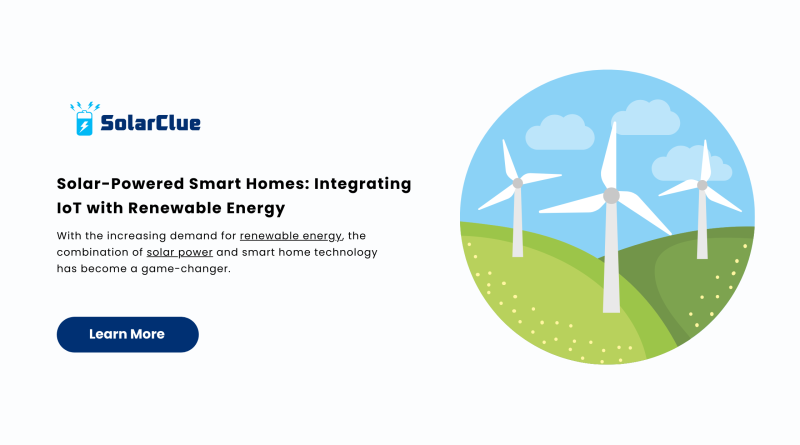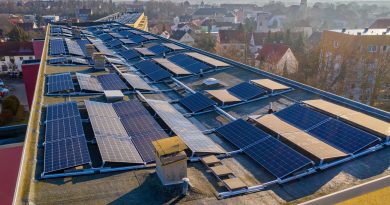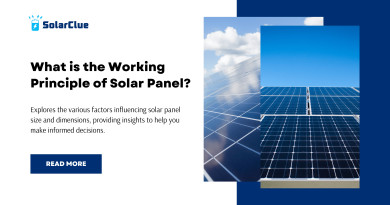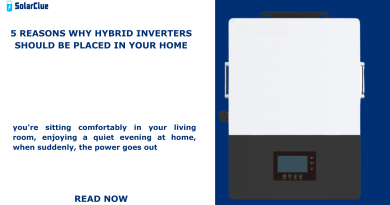Solar-Powered Smart Homes: Integrating IoT with Renewable Energy
With the increasing demand for renewable energy, the combination of solar power and smart home technology has become a game-changer. As solar energy becomes more accessible, homeowners are integrating IoT (Internet of Things) devices to optimize energy efficiency, reduce electricity bills, and contribute to a greener planet. But how does IoT enhance solar power efficiency, and why is it the future of smart living? Let’s explore the exciting possibilities of solar-powered smart homes.
Table of Contents
The Rise of Solar Energy in Smart Homes
Why Choose Solar Energy?
Solar energy is one of the most sustainable and cost-effective sources of power. With advancements in solar panel technology, homeowners can harness the sun’s power to run their entire household efficiently.
How Smart Homes Utilize Solar Power?
Modern smart homes integrate solar power systems with IoT devices, allowing users to monitor and control energy consumption in real-time. This combination helps in reducing energy wastage, increasing solar power efficiency, and optimizing power storage.
Key Components of a Solar-Powered Smart Home
1. Smart Solar Panels
The latest solar panels for homes come equipped with sensors and AI-powered technology that adjust to sunlight conditions for maximum energy absorption.
2. IoT-Enabled Solar Inverters
These devices convert solar energy into usable electricity while providing real-time analytics on energy generation and consumption.
3. Smart Batteries and Energy Storage
IoT-integrated batteries store excess solar power, ensuring your home remains powered even during non-sunny hours.
4. AI-Powered Energy Management Systems
These systems analyze energy usage patterns and automate power distribution, enhancing solar power efficiency.
Benefits of Integrating IoT with Solar Power Systems
1. Enhanced Energy Efficiency
IoT devices help in optimizing solar energy consumption by automatically adjusting usage based on demand.
2. Cost Savings on Electricity Bills
By maximizing solar power efficiency, homeowners can significantly cut down their electricity costs.
3. Remote Monitoring and Control
Smartphone apps allow users to track their solar power system performance and make adjustments remotely.
4. Increased Sustainability
Reducing reliance on traditional energy sources contributes to a more sustainable and eco-friendly lifestyle.
Factors Affecting Solar Panel Efficiency
1. Quality of Solar Panels
Investing in high-quality solar panels for homes ensures better energy conversion and durability.
2. Proper Installation
Correct positioning and installation of solar panels affect how much sunlight they absorb, impacting overall performance.
3. Weather Conditions
While solar energy is abundant in sunny regions, advanced panels now capture and store energy even on cloudy days.
4. Maintenance and Cleaning
Regular maintenance keeps solar panels clean and free from debris, ensuring optimal performance.
Understanding Solar Panel Pricing and ROI
1. How Much Do Solar Panels Cost?
The solar panel price varies based on efficiency, brand, and installation costs. While the upfront investment may seem high, government incentives and long-term savings make it a worthwhile investment.
2. Calculating Return on Investment (ROI)
The payback period for a solar power system depends on energy savings, local incentives, and panel efficiency. Most homeowners recoup their investment within 5-8 years.
Future of Solar-Powered Smart Homes
As technology advances, we can expect even more intelligent integrations, such as AI-driven energy forecasting and blockchain-based peer-to-peer energy trading. These innovations will further revolutionize how solar power is utilized in smart homes.
Conclusion
The integration of IoT with renewable energy is transforming modern homes, making them more efficient and sustainable. By investing in a solar power system, homeowners not only save on energy costs but also contribute to a cleaner environment. Ready to upgrade your home with solar panels? Visit our website to explore the best solar energy solutions for your smart home today!
FAQs
1. What is the lifespan of a solar panel?
Most solar panels for homes last between 25-30 years with proper maintenance.
2. How can IoT improve solar power efficiency?
IoT devices optimize energy usage, track performance in real-time, and automate power distribution for better efficiency.
3. Are there government incentives for installing solar panels?
Yes, many countries offer tax credits, rebates, and incentives to promote solar energy adoption.
4. Do solar panels work during cloudy days?
Yes, modern solar panels can still generate electricity even in low sunlight conditions, though at reduced efficiency.
5. How much do solar panels cost?
The solar panel price depends on the size, efficiency, and brand. Government subsidies can also impact the final cost.




